Chuubo's Marvelous Wish-Granting Engine by Rand Brittain
Introduction
Original SA post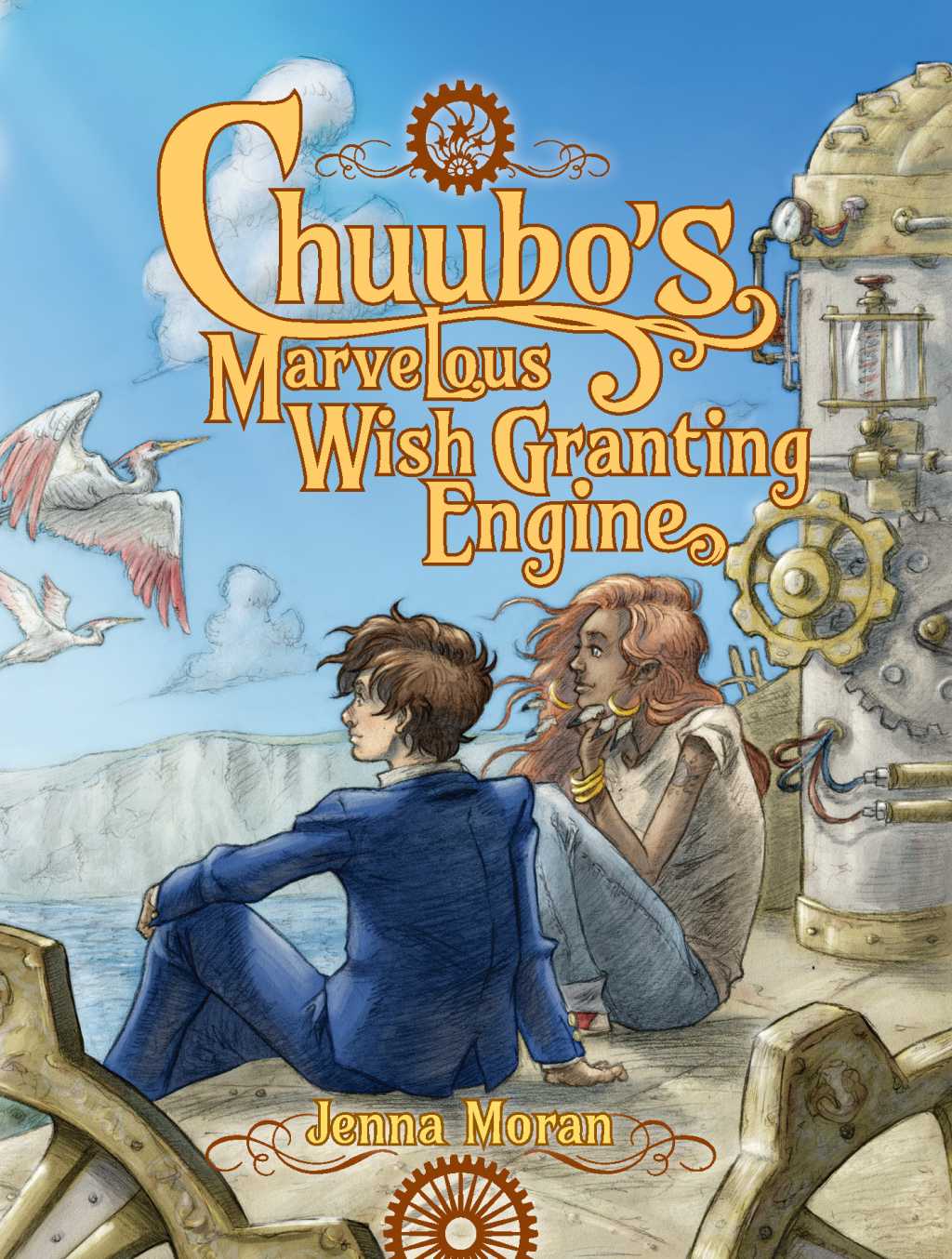
Chuubo's Marvelous Wish-Granting Engine
Introduction
quote:
Sometime after the world drowned I found myself on one of the boats that go to Town.
I didn’t know yet that the world had fallen.
Chuubo's Marvelous Wish-Granting Engine is the latest game by Jenna Moran, also known for Nobilis and for her work on Exalted and Weapons of the Gods. If you're familiar with Nobilis, you might describe Chuubo as a low-powered version of Nobilis designed around slice-of-life shenanigans and small-town adventure.
If you're of a more mechanical turn of mind, Chuubo has a number of new features that make it very different from its parent game in practice. Nobilis used a point-bidding system for mortal characters, so that everybody had 8 points of Will to commit to all their various projects in a given day, with more Will allowing you to buy stipulations like "I do this correctly," "I do this and it works," "I do this and it makes things better," or maybe just "Well, I pleased myself, at least."
Chuubo still has this system but it's secondary to the Quest and XP systems, which are essentially ways to help players answer the question "What should I do next?"
quote:
Being and nothingness were swallowed, both of them, by the tidal wave of the Outside, but I hadn’t noticed yet, because I’d been living in one of the places that got covered by it, and so I’d stopped existing in any kind of defined way for a little while.
Then one of the exploring boats found Suzhou, where I’d been living. It made Suzhou exist again, more or less. It stopped being a wild, chaotic delirium and became a place again... more or less.
There's also plenty of miraculous powers for those who want to turn into a giant snake (this never helps) or command the waters of Big Lake, or something like that. The core of the gameplay comes from XP Actions, however, where you hit the right emotional beats for the genre you're aiming at in order to add XP to the pot. These XP go towards your quests, and completion of those quests allows you to make progress on the larger goals in your life. (Quests also have their own specific XP conditions, but we'll get to that later.)
quote:
I don’t think I was fully real again yet when I boarded.
I didn’t wake up, not all the way, until the boat crested the horizon of Big Lake and I saw the dockside settlement of Fortitude for the first time. Then it was like my heart woke up, and everything that had been black and white became color, and the textures of the world came back, and sound had richness and deepness once again.
It wasn’t because I’d been unreal, exactly.
It was part of it, I think, but only part of it. It was because... it was because as soon as I saw Fortitude I understood that work would be rewarded; that things had a beautiful simplicity; and that I had a home.
Basic Principles
The first part of the book is the standard rundown on "What Is An RPG and Why?" that all RPG manuals have to have. It also includes a few basic principles that are more specific to this system like "you can always act". I think you guys mostly know the drill by now, though!
The first game element that comes up that really needs explaining is going to be the eight Arcs and their colors. The path your character is moving along is an Arc, and Arcs can be customized via both the quests you take moving along them, the color of the Arc, and by a miraculous set of powers that you acquire for completing the Arc if you're playing on the miraculous scale.
(Oh, yeah, that scale is a thing. You can play a game of Chuubo's equally well with or without miraculous abilities. I almost think it would be better without, but I seem to be alone in this opinion.)
-
Blue
arcs related to dealing with sealed or forbidden things—doing something you shouldn't or "shouldn't"
-
Orange
arcs involve taking on a formal role and working within it
-
Green
arcs involve interacting with the world and otherworld via dreams, nature, and communication with spirits
-
Red
arcs involve telling stories; usually, you'll have a specific kind of story that you embody or facilitate
-
Golden
arcs involve training hard and pushing yourself to become better
-
Purple
arcs involve guiding, guarding and protecting others.
-
Silver
arcs involve suffering, maybe a little and maybe a lot
-
Black
arcs touch the unknowable and involve you walking into the hands of higher powers.
Exactly how you use this in practice will be something we explore in the next chapter, Campaigns! I will continue updating this WIR if you all wish hard enough, so please keep your hands locked in the wishing position until next time!
quote:
I guess that if you’re reading this then you are real. As I write this, you are mildly notional, of course. You can’t possibly be as real as the wood of the buildings, the depth of the air, the sounds of fish being sliced open and the smell of marlin cooking on a limestone slab. You’re part of the diffuse potential of “you could be reading this.”
But by the time you actually see this I guess you must be someone real. You must be a real, physical person, in one of the reclaimed regions, and maybe not even knowing that the world was lost. You might not even realize that you’ve been cheated, that there could be—
That there was more .
So come. Come to a little place called Town, in the middle of nowhere, circled by its reborn sun. Come, at least in play, and maybe in person if you can stand giving up some of the modern luxuries, and feel what it’s like to really live.
There is so much to experience here. You could live .
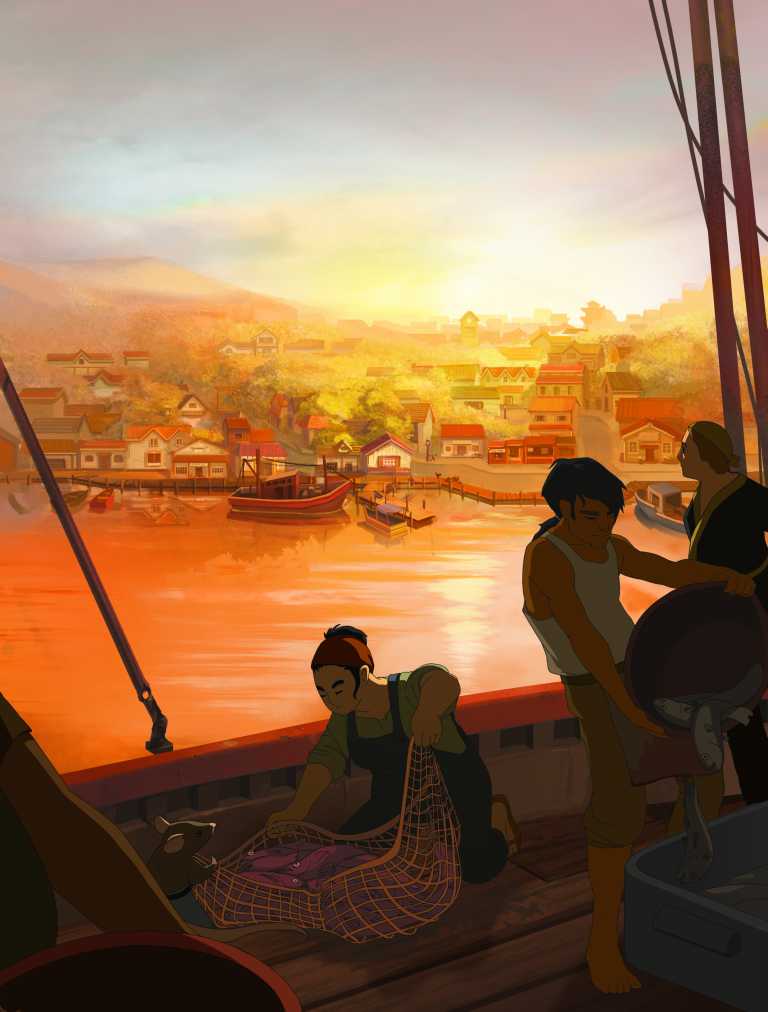
Genres
Original SA post CHUUBO'S MARVELOUS WISH-GRANTING ENGINEPart Two — Genres
The first big thing you'll want to decide when starting a new game of Chuubo is what genre you want to run it in. The rules support eight different types of game, each of which corresponds to one of the eight colors. They are as follows:
-
Pastoral
(purple)
-
Gothic
(silver)
-
Immersive Fantasy
(red)
-
Techno
(black)
-
Fairy Tales
(green)
-
Epic Fantasy
(blue)
-
Adventure Fantasy
(orange)
and then there's also The Road of Trials (gold), which is a little different, because you won't actually set a whole game there.
The core of the XP engine runs around the "XP Actions" or emotional beats that each player will perform one of in each chapter. The in-character length of the chapter varies based on genre, but out-of-character a chapter lasts as long as each character needs to do one of the three or four XP Actions belonging to the genre you're playing in. So, the XP Actions for Pastoral games are Shared Action (do an ordinary thing with somebody else), Shared Reactions (talk about your feelings with somebody), and Slice of Life (look at the world around you and emote), and chapters last a week.
Once you take your XP Action for the chapter, you "fade" and let that mood summarize what you're up to for this chapter. Once that's done, it's good manners to let another player take the spotlight.
What is this for? It means that the backbone of a Pastoral game is going to be each player character doing something like watching another player character cooking, or drinking tea while watching the sunset, or having heartfelt discussions with each other, over the course of an individual week. In between these things, of course, there's plenty of time for standard player-character work like looking for the broken shards of a glass dragon or turning everybody French with your wishing machine, but these rules mean that no matter what, the timeframe is built around a certain degree of feelings-talking, tea-drinking, sunset-watching pastorality and that those are the scenes that set the pace. Meanwhile, in an Immersive Fantasy game your XP Actions revolve around beholding amazing things around you and you'll blow through three chapters in one in-game day.
(This variable pace also means that your once-per-chapter powers have different recharge times in different genres.)
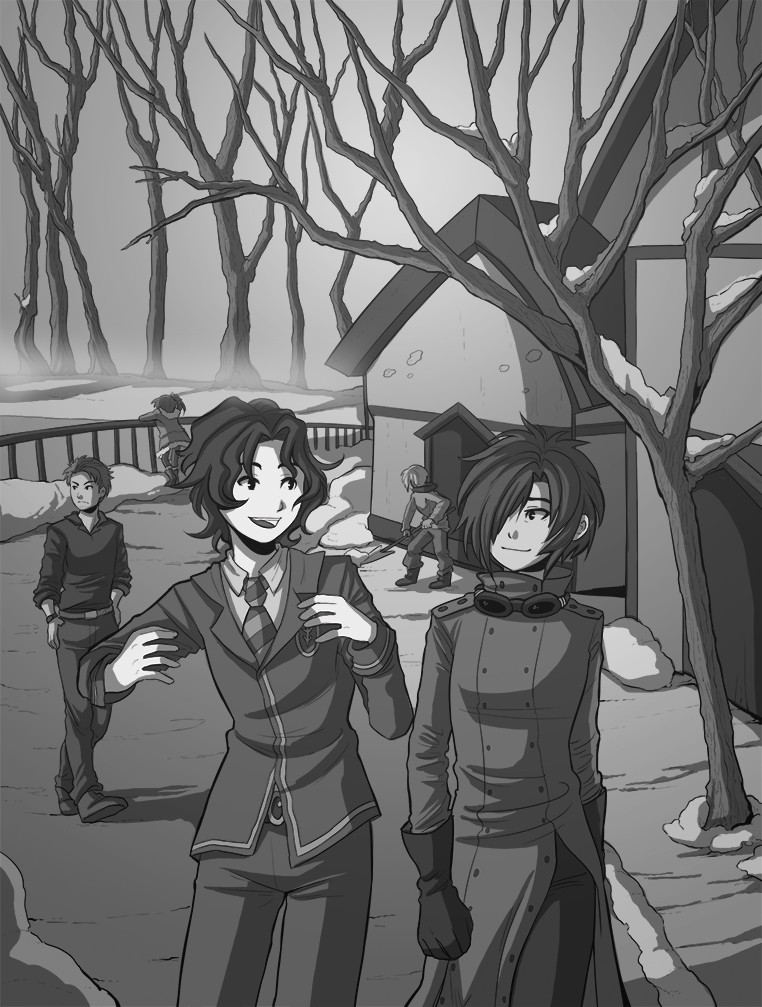
PASTORAL
Pastoral games are meant to be slow and dreamlike. You'll tend to have chapters last a week and each story will last about a season, so that you'll move through the calendar as you go forward. The holidays on the calendar are important, because you get bonus XP for celebrating them. The first supplement, Fortitude: By the Docks of Big Lake, goes into more detail about the holidays and how Town celebrates them, including the awesome and apparently real Pancake Week, which involves making pancakes, wrestling, and harvest goddesses.
The three XP actions here are:
-
Shared Action:
Connect emotionally to someone doing simple, honest things.
-
Shared Reactions:
Connect to someone while talking about important stuff.
-
Slice of Life:
Have an emotional reaction to something in the world, and get lost in the mood.
You'll use the pastoral mode to play games that remind you of Yokohama Shopping Log, Kamichu!, or some of the dreamier Ghibli films. It's also a pretty good way to simulate any of the various "club members doing nothing" shows.
GOTHIC
Gothic games are similar to Pastoral ones, but they add the element of obsession. When playing in a Gothic game, you'll use the Pastoral XP Actions, but you'll add:
-
Obsessive Action:
Get worked up over something, and then go
right
over the edge.
Chapter lengths are going to vary in games of this time as you spiral outward and let time pass, and then spiral in again towards some event that you're highly focused on. You'll use this genre for things along the lines of Wuthering Heights or similar melodramas.
IMMERSIVE FANTASY
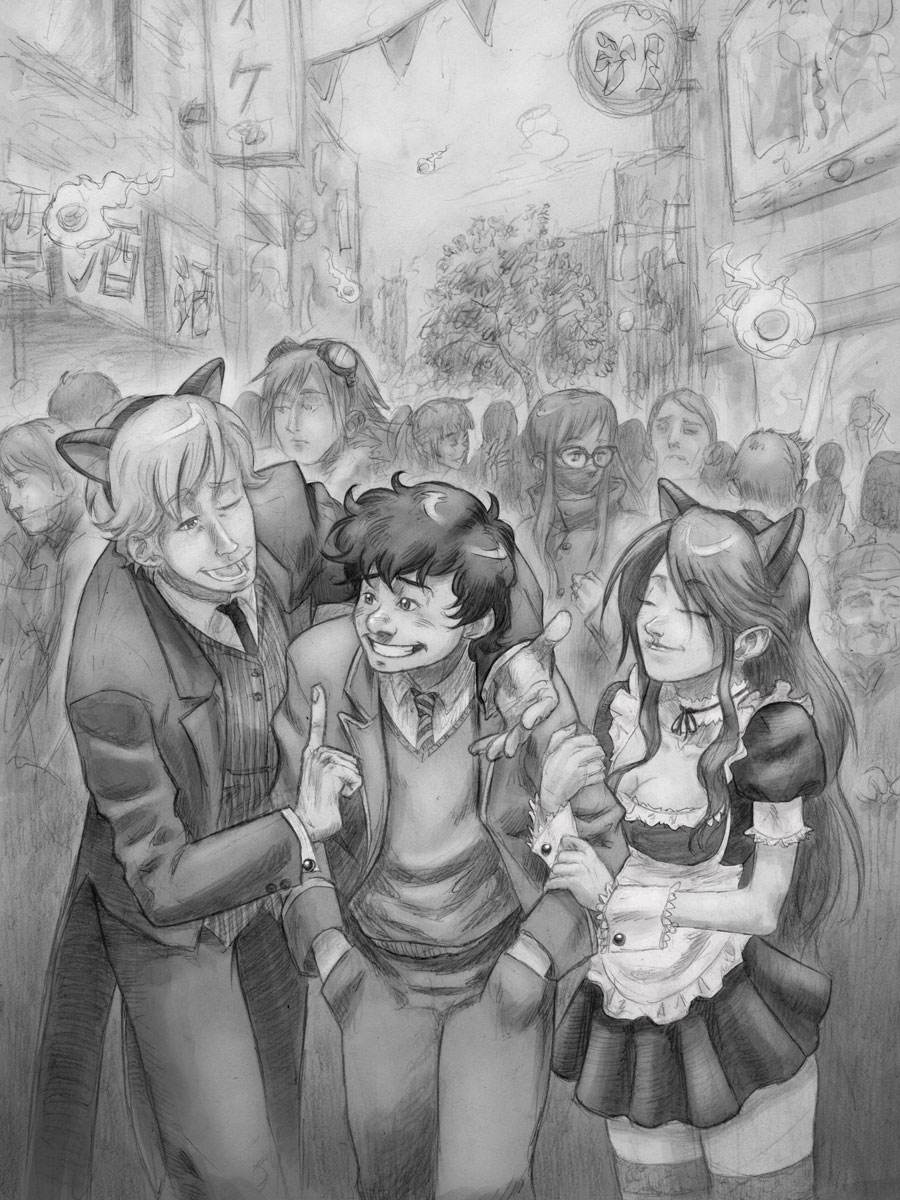
This one is my favorite. Originally called "Urban Fantasy," it got changed to the current name to get across the notion of losing yourself in experience of the world. Immersive games are all about exploration, about being in a world full of magic and wonder and being hungry to eat it all up. The XP Actions for Immersive Fantasy games are:
-
Sympathetic Action:
See someone who's frozen up with emotion, and try to offer them help or sympathy.
-
or,
Shock,
the reversed form of Sympathetic Action, where you're the one who's frozen up.
-
Foreshadowing:
See something happening and decide that it's important! Get caught up!
-
Discovery:
Do or see something new, and declare that it's important enough to have an impact on you.
You'll use this mode for playing something in the style of Durarara!!! , The Eccentric Family or Gatchaman CROWDS.
TECHNO
Techno games build on Immersive Fantasy, and there's really only one difference: you're expected to use Rituals and Transitions a lot more often.
Rituals are odd. A Ritual is the go-to XP Action for anything that breaks the normal dramatic rules and goes straight for something stylized and magical. When you invoke your magical girl transformation sequence, that's a Ritual. A lot of other powers involve using a Ritual as well, like invoking the Marvelous Wish-Granting Engine. If your sister puts on a weird hat every week and yells at you about fate and survival strategies and then drops you down a hole, that's a Ritual too.
Performing a Ritual is a collaborative effort with everybody tossing an action or a reaction into the pot, so they're efficient sources of XP if everybody is on board. Which they may well be, if they watch the right kinds of TV shows!
A Transition is a similar kind of framing device but it's more like an short intermission between certain kinds of scenes where you stop and reflect a bit, usually with the aid of a bit of poetry. You use them to create a sense of distance or mysterium, along the lines of "You can tell the Headmaster's Methodology Tower is a special and spooky place because I have to read you a bit of 'Tyger, Tyger' before you can go in." You could also achieve a neat effect by doing something like requiring a Transition for anybody to enter or leave the School.
Next time: the other four genres!
Genres, Some More
Original SA post CHUUBO'S MARVELOUS WISH-GRANTING ENGINEPart Three — Genres, Some More
The Road of Trials
The next genre in our magical mystery tour is the Road of Trials, where everything is awful. You don't really play a game on the Road of Trials, because that would be awful. Instead, when things are really bad and you've got some suffering that can't be avoided, you'll shift from Immersive Fantasy or Adventure Fantasy or whatever and spend some time on the Road of Trials.
Things get weird out on the Road of Trials. This isn't really the kind of game that likes to focus too much on tribulation porn, so instead of gory details what you'll often get are breaks from reality. Things will turn psychedelic and you'll start to have experiences where singing vultures taunt you with canteens of water held just out of your reach. Breaks from reality can also happen in more pleasant circumstances, like daydreaming and temporarily wandering into the kingdom in the sky.
The reality of these experiences is questionable, but the thing about being questionable is that the answer to "did that actually happen" isn't necessarily "no." The evidence for the singing vulture tends to be cleared away, but not perfectly. If you have a question about this, the HG is encouraged to use one of three magical phrases:
-
"Let us never speak of this again.
-
"...surprising no one."
-
"And how it works? That's
your
problem."
With these, you could explain away almost anything!
The XP Actions for the Road of Trials are:
-
(Suffer) Adversity
(Be in a really unpleasant situation, and then either tip straight into delirium or give up.)
-
(Suffer) Corruption
(Be corrupted by some outside influence and experience surreal effects as it grows stronger.)
-
(Suffer) Trauma
(Experience or be reminded of some trauma, and experience surreal effects as your wounds deepen.)
-
Never Say Die!
(Be completely outmatched, and fight until you fall over.)
Fairy Tales
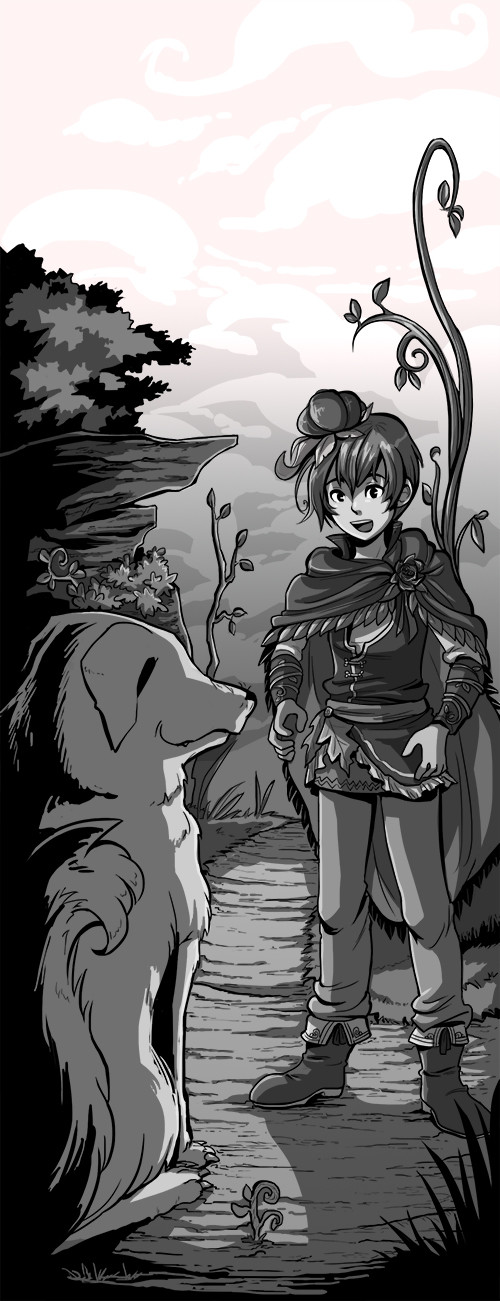
The Fairy Tale genre builds on the Road of Trials, but adds "an element of destiny or transformation" to all your trials and tribulations. Or, I guess you could say, it turns random suffering into trials and tribulations, with the sense that there's some kind of point behind it all.
Fairy Tales add one more XP action to the roster:
-
(Suffer) Transformation/Metamorphosis
(Be transformed by outside influence, and experience surreal effects as it grows stronger.)
This is exactly the same as (Suffer) Corruption, but it does have a much nicer name!
Epic Fantasy
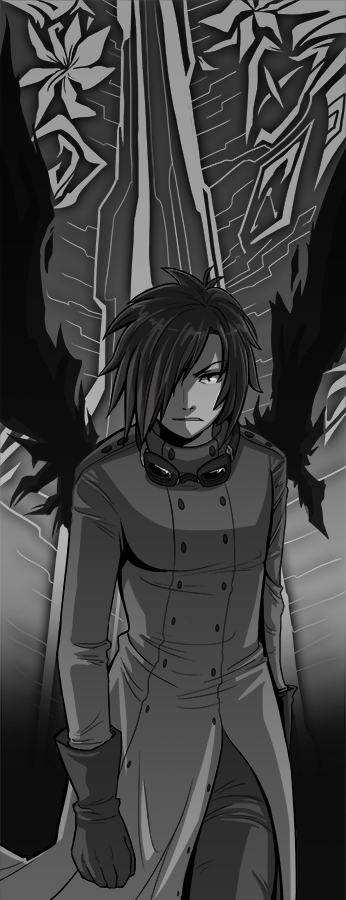
Epic Fantasy is for stories about great deeds and big decisions. It's also the genre that contains my favorite XP Action! The actions for this genre are:
-
Science, Faith, and Sorcery
(When thinking about how something works, propose an idea, and then test it.)
-
Decisive Action
(After narrating your thoughts or having someone narrate them for you, take some action you can't back down from.)
-
Wicked Action
(When doing something you know you oughtn't, fall into a delirious abyss of self-indulgence.)
Science, Faith and Sorcery is my favorite of all the XP Actions. I think it says a lot about the philosophy behind Chuubo that these three concepts are all the same thing rather than any given two of them being opposed. It's all about putting yourself at risk to test the validity of an idea, whether you just want to know if it's true, you're putting your trust in the truth of it, or whether you're actually trying to make it true through force of will.
Epic fantasy is a good genre for stories in the vein of Norse myth or something like The Dark is Rising.
Adventure Fantasy
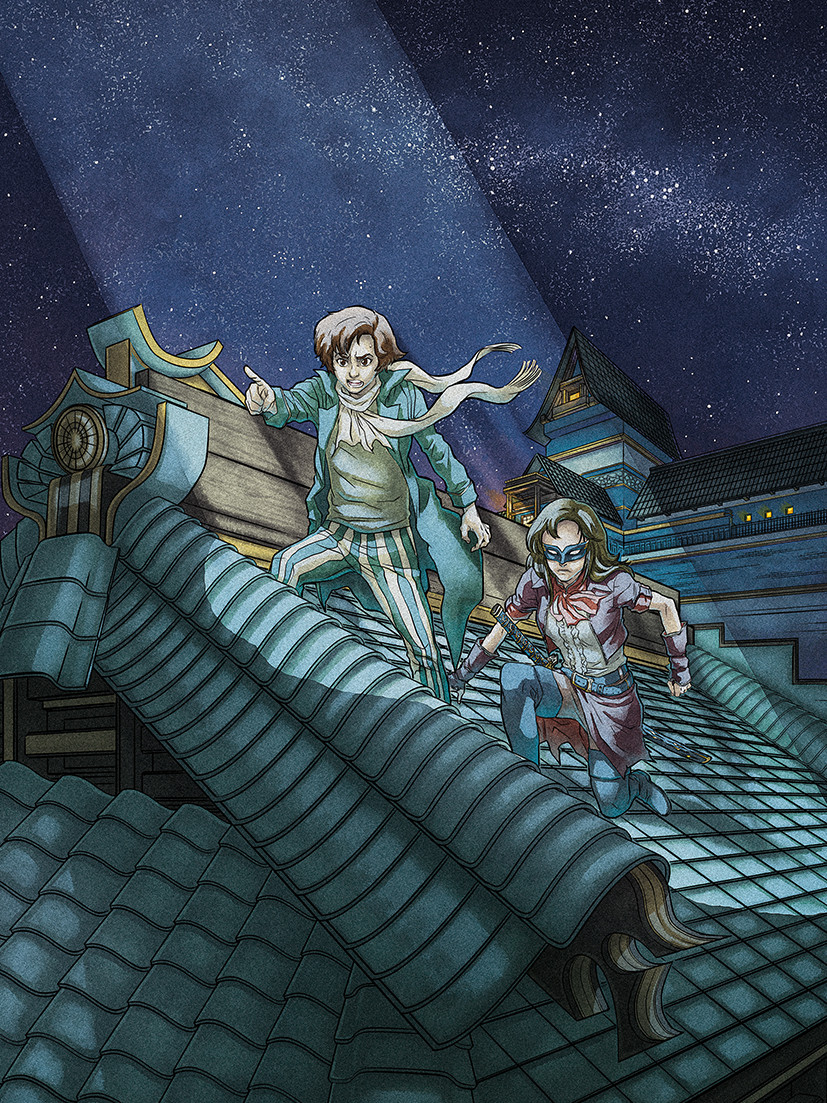
Adventure Fantasy builds on Epic Fantasy, but in addition to all the larger-than-life moments it maintains a mortal perspective. It's possible to be overwhelmed by events. It's possible to get into Trouble.
-
Trouble
(When a threat approaches, be overwhelmed and outmatched.)
(It's interesting how this pushes players to calibrate their description of their personal abilities and the things that oppose them! In most games, you want to win against your enemies, and to do so quickly and efficiently, but in a Chuubo game, you need to spend time being outmatched by them if you want to get XP and make progress.)
Adventure Fantasy is one of the broadest genres, and would be excellent for stories that remind you of books by Diana Wynne Jones or a more traditional swords-and-sorcery setup.
NEXT TIME: Character building! Does anybody have a particular kind of character they'd like to see in the Chuubo system?